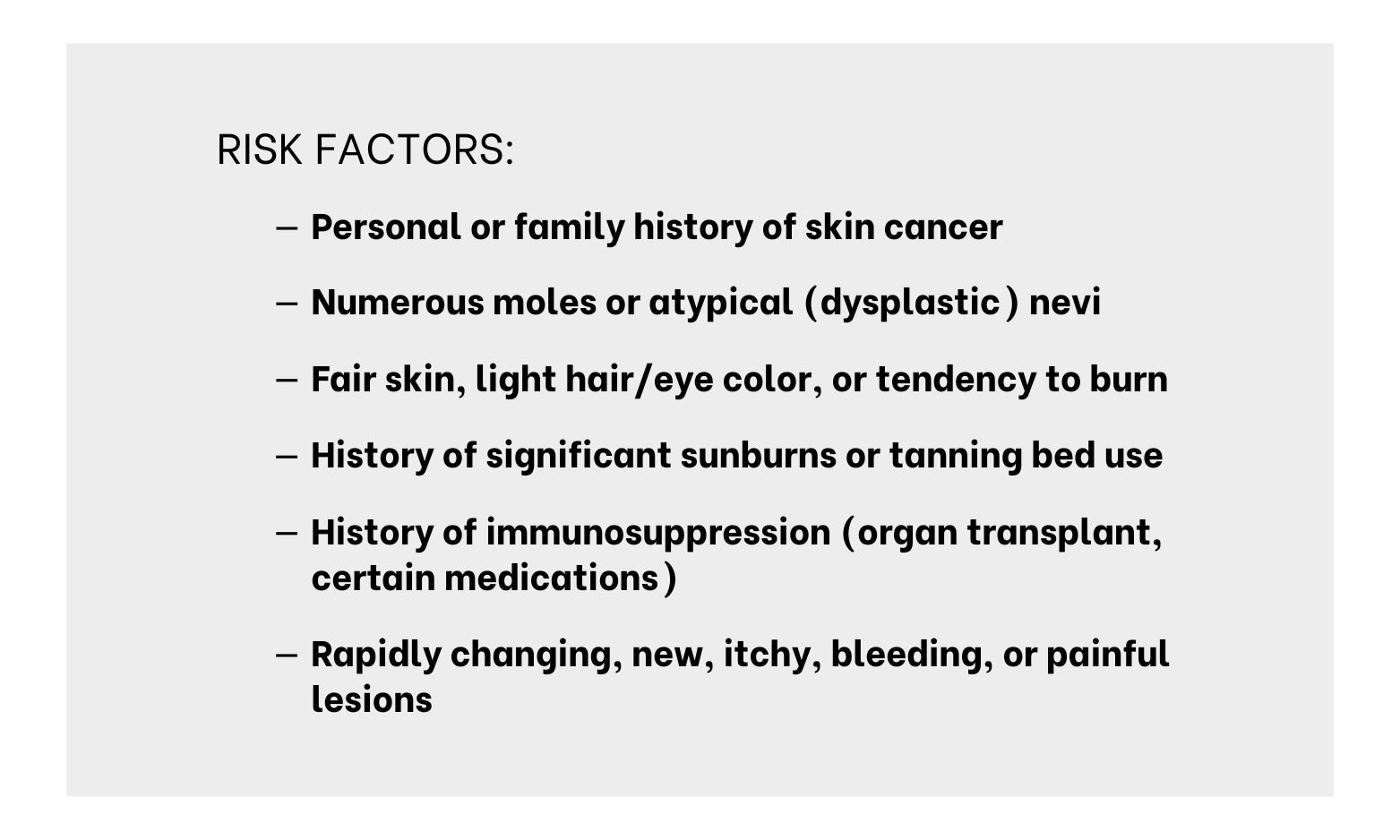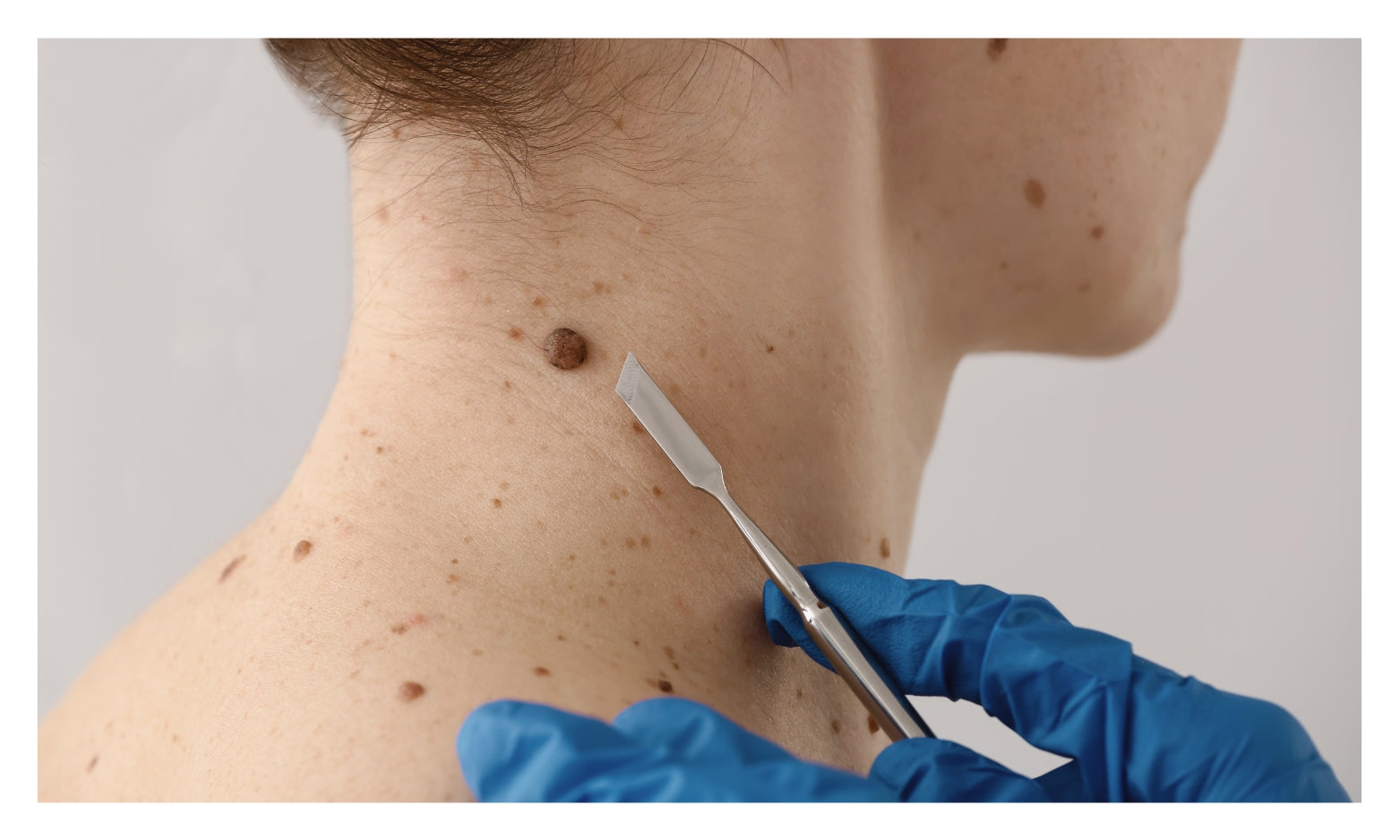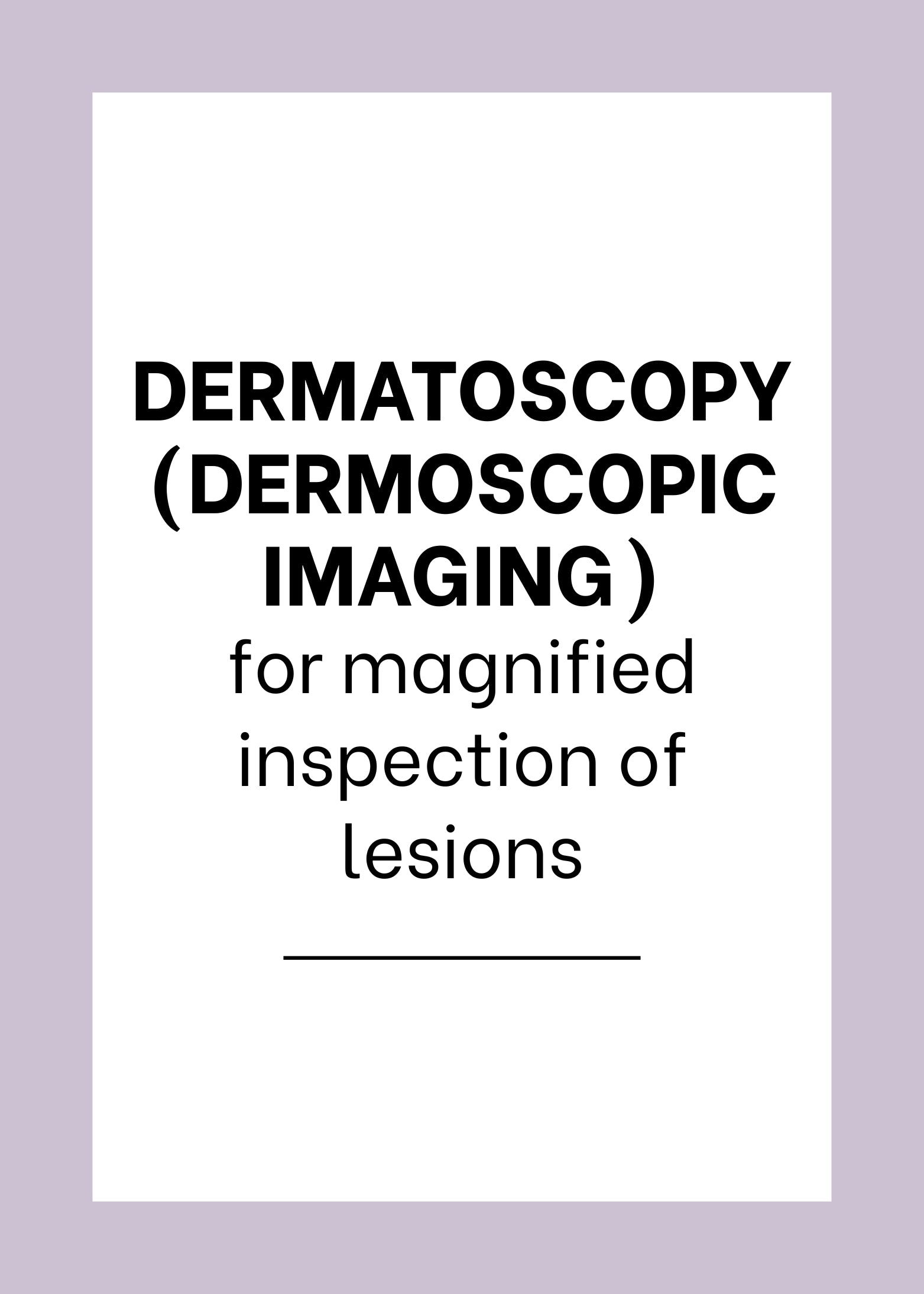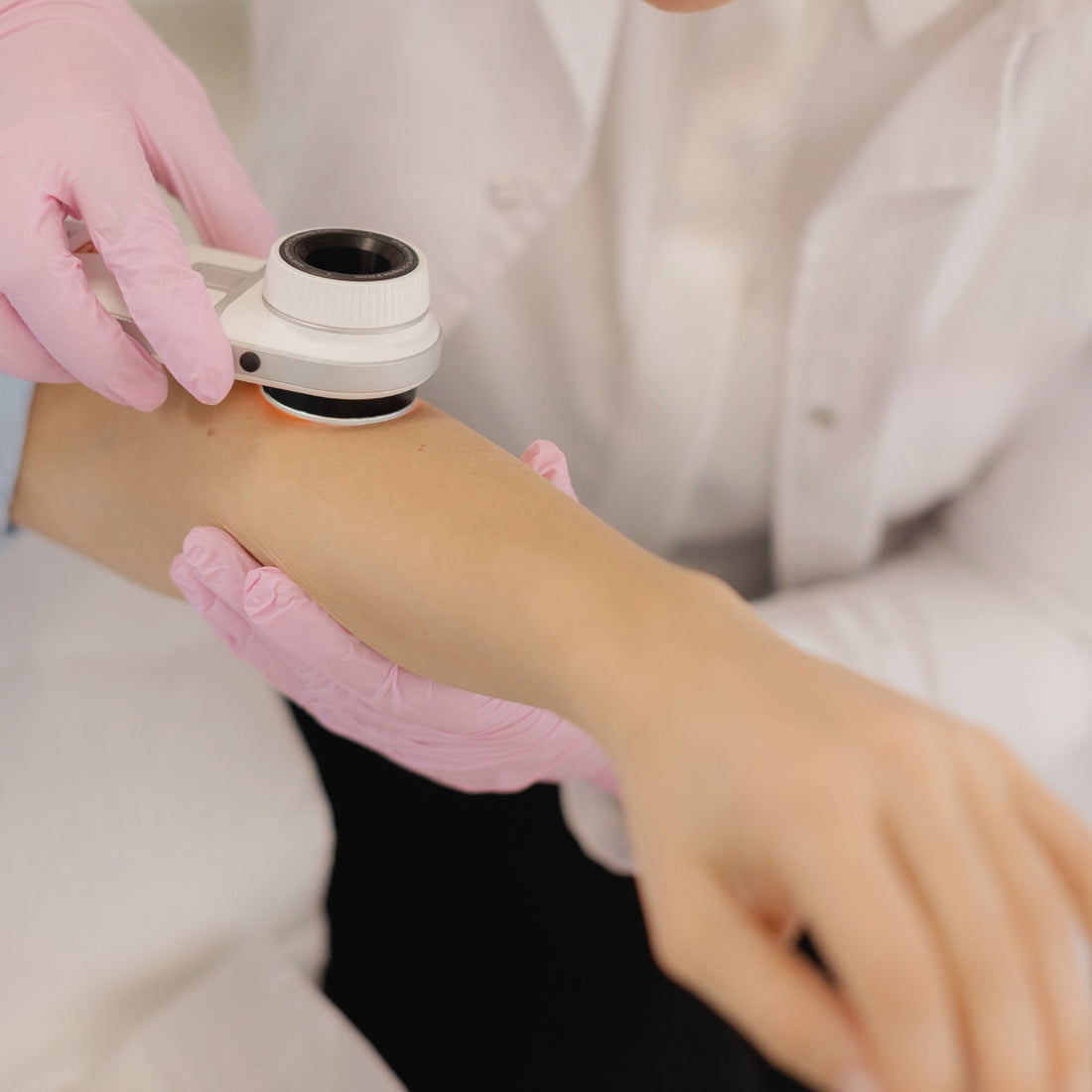
Early Detection. Better Outcomes.
Regular skin cancer screenings are the best defense against skin cancer. At Chicago Cosmetic Surgery & Dermatology, our Board-Certified Dermatologists and expert clinical team perform comprehensive, head-to-toe skin exams using the latest tools to detect suspicious lesions early—when treatment is simplest and most effective.

What Is a Skin Cancer Screening?
A skin cancer screening is a focused full-body exam performed by a dermatologist to look for unusual moles, growths, or changes in your skin that could indicate basal cell carcinoma, squamous cell carcinoma, melanoma, or other skin cancers. The goal is early identification so treatment can begin promptly.
Regarding frequency of screenings:
- Annual exams are commonly recommended for most adults.
- More frequent checks (every 3–6 months) may be advised for those with higher risk—your dermatologist will personalize the schedule.
- Always seek prompt evaluation for any new, changing, or symptomatic lesion between scheduled visits.
What We Use to Detect Skin Cancer





What to Expect During Your Visit

History & Risk Review
We’ll ask about personal/family history, sun exposure, and any skin changes

Full-Body Exam
A head-to-toe visual and dermatoscopic inspection—clothing can remain on for modesty; you’ll be asked to remove layers as needed

Photography
Baseline photos may be taken for future comparison when indicated

Biopsy If Needed
If a spot looks atypical, a small biopsy may be performed that day or scheduled promptly

Clear Follow-Up Plan
Results, next steps, and treatment options are communicated quickly and compassionately
Why choose Chicago Cosmetic Surgery & Dermatology?






FAQ's for Skin Cancer Screenings
What causes pigment disorders like melasma, sunspots, or vitiligo?
What causes pigment disorders like melasma, sunspots, or vitiligo?
Pigment disorders are caused by an imbalance in melanin — the pigment that gives skin its color. Overproduction can lead to dark spots or patches (hyperpigmentation), while underproduction causes light patches (hypopigmentation), as seen in vitiligo. Triggers include sun exposure, hormonal changes, inflammation, injury, genetics, and autoimmune responses.
How do I know which type of pigment disorder I have?
How do I know which type of pigment disorder I have?
A clinical evaluation by one of our medical experts is the best way to determine the cause of your discoloration. We will use advanced tools such as the Visia Skin Analysis Machine to tailor your treatment plan accordingly.
Are pigment disorders permanent?
Are pigment disorders permanent?
Some pigment conditions, like melasma or post-inflammatory hyperpigmentation, can improve significantly with treatment and sun protection. Others, like vitiligo, are chronic but manageable. While results vary by condition and skin type, many patients experience long-lasting improvement with consistent care.
Is laser treatment safe for darker skin tones?
Is laser treatment safe for darker skin tones?
Yes — when performed by experienced providers using appropriate technology. Our team is highly trained in treating skin of color and uses pigment-safe lasers designed to minimize the risk of post-inflammatory hyperpigmentation or scarring.
Can I prevent pigment disorders from developing or worsening?
Can I prevent pigment disorders from developing or worsening?
In many cases, yes. The most important prevention strategy is daily sun protection using a broad-spectrum SPF 30 or higher — even on cloudy days. Avoiding heat, managing hormone triggers, and using pigment-safe skincare can also help reduce flare-ups or recurrence.
Early detection matters.
Finding skin cancer early often allows for less invasive treatment, better cosmetic results, and improved cure rates—especially important with aggressive cancers like melanoma. Regular screenings and self-checks save lives.




